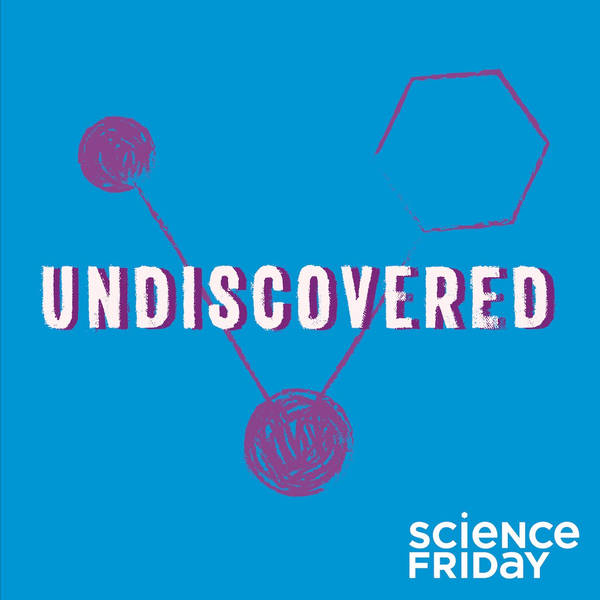
Kurt Vonnegut and the Rainmakers
In the mid 1940s, no one would publish Kurt Vonnegut’s stories. But when he gets hired as a press writer at General Electric, the company’s fantastical science inspires some of his most iconic--and best-selling--novels.
Every snowflake is unique—except they all have six sides. In ice, water molecules arrange themselves into hexagons.
(Courtesy MiSci Museum)
Imagine the Earth has been turned into a frozen wasteland. The culprit? Ice-nine. With a crystalline structure that makes it solid at room temperature, ice-nine freezes every drop of water it comes into contact with, and (predictably) ends up destroying the world. This is the fantastical plot of Kurt Vonnegut’s 1963 novel, Cat’s Cradle. But the science that inspired the fiction came from the real-life research his older brother and team of scientists at General Electric conducted just after World War II.
General Electric might be best known for manufacturing refrigerators and light bulbs, but in the 1940s, the GE scientists joined forces with the military and set their sights on a loftier project: controlling the weather.
Controlling the weather could mean putting an end to droughts and raining out forest fires. But the GE scientists’ military collaborators have more aggressive plans in mind. Kurt, a pacifist, closely watches GE’s saga unfold, and in his stories, he demands an answer to one of science’s greatest ethical questions: are scientists responsible for the pursuit of knowledge alone, or are they also responsible for the consequences of that knowledge?
Vincent Schaefer of the General Electric Research Laboratory demonstrates his method for making snow in a laboratory freezer, circa 1947.
Vincent Schaefer, colleague of Bernie Vonnegut, makes man-made snow in a freezer at General Electric.
(Courtesy of MiSci Museum)
Vincent Schaefer gives a demonstration of the team’s cloud seeding research to Signal Corps at GE laboratories in 1947.
(Courtesy of MiSci Museum)
(Original art by Claire Merchlinsky)
GUESTS
Ginger Strand, author of The Brothers Vonnegut: Science and Fiction in the House of Magic Cynthia Barnett, author of Rain: A Natural and Cultural HistoryCREDITS
This episode of Undiscovered was reported and produced by Elah Feder and Annie Minoff. Editing by Christopher Intagliata. Archival material was provided with help from Chris Hunter of miSci in Schenectady, as well as Scott Vonnegut and Jim Schaefer. Fact-checking help by Michelle Harris. Voice acting by Charles Bergquist, Christie Taylor, Luke Groskin, and Ira Flatow. Original music by Daniel Peterschmidt. Our theme music is by I am Robot and Proud. Art for this episode by Claire Merchlinsky. Thanks to Science Friday’s Danielle Dana, Christian Skotte, Brandon Echter, and Rachel Bouton.
